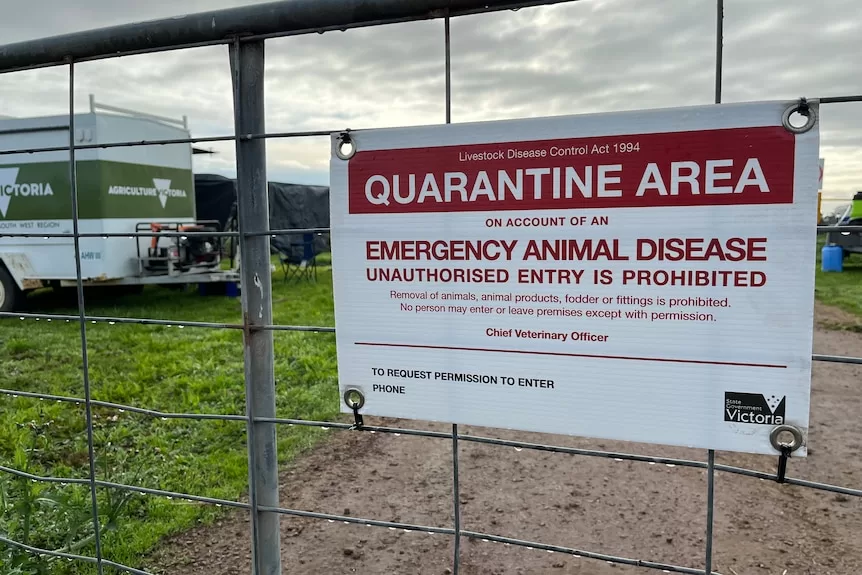- In short: An outbreak of avian influenza in Victoria has prompted the US to ban all Victorian poultry products.
- The restrictions apply to fresh poultry, commercial birds, eggs and poultry by-products.
- What’s next? In an effort to contain the outbreak, Agriculture Victoria has placed the two farms impacted by the outbreak in a control zone.
The United States Department of Agriculture has banned imports of all Victorian poultry products following an avian influenza outbreak.
The H7N3 strain of the virus commonly known as bird flu was found on an egg farm in Meredith, west of Melbourne, on Wednesday and has since been linked to another site 130 kilometres south-west in Terang.
The two properties share joint management, staff and machinery.
More than 500,000 birds have had to be euthanased this week.
The H7N3 is a high pathogenic strain of avian influenza and resulted in 400,000 chicken deaths at the Meredith farm in a bid to control the spread of the virus.
The US Department of Agriculture’s Animal and Plant Health Inspection Service (APHIS) said it was restricting the importation of “poultry, commercial birds, ratites, avian hatching eggs, unprocessed avian products and by-products, and certain fresh poultry products from the State of Victoria, Australia”.
The ban applies to products originating or transiting through Victoria as of May 22.
Victorian Farmers’ Federation vice president Danyel Cucinotta said the state’s agriculture industry was focused on preventing infection.
“While export restrictions are never good news for farmers, our focus remains on containing the spread on our farms,” she said.
Both Victorian farms impacted by the avian influenza outbreak have been placed under quarantine and orders are in place restricting the movement of poultry, equipment and vehicles around the properties.
Victorian government statistics say the state exported $36 million in the year 2021-2022, which accounted for 2.5 per cent of the state’s food exports.
Papua New Guinea is the largest market for Victorian poultry exports ($10 million), followed by Philippines ($8 million) and the Solomon Islands ($4 million).
Posted , updated
